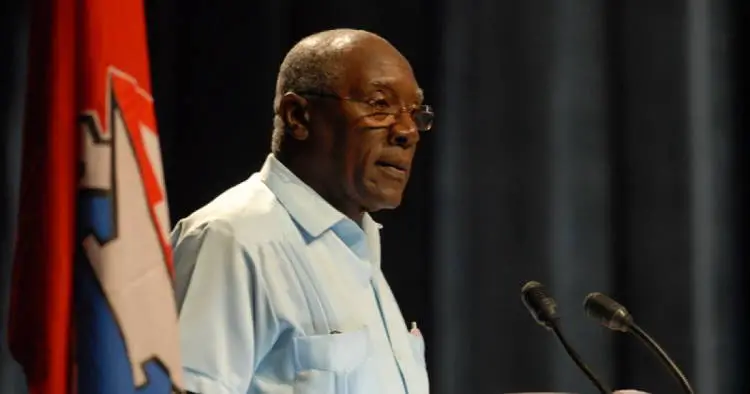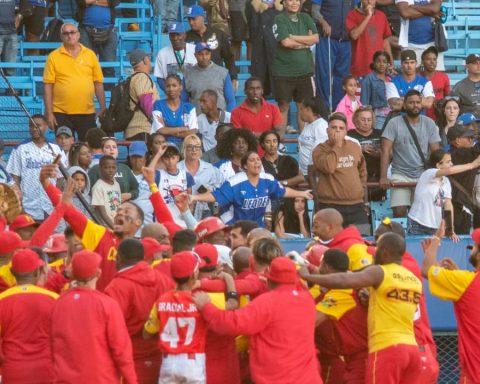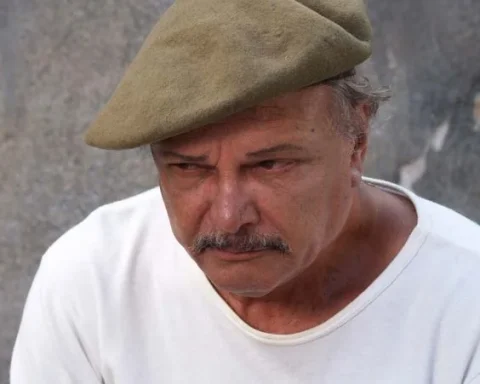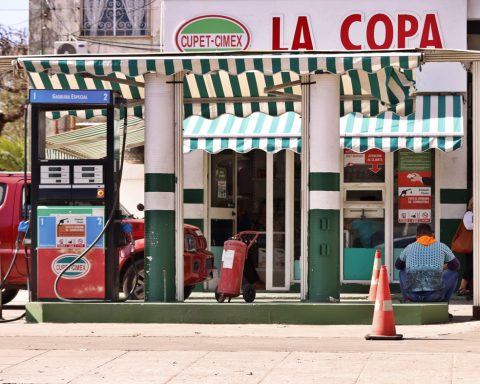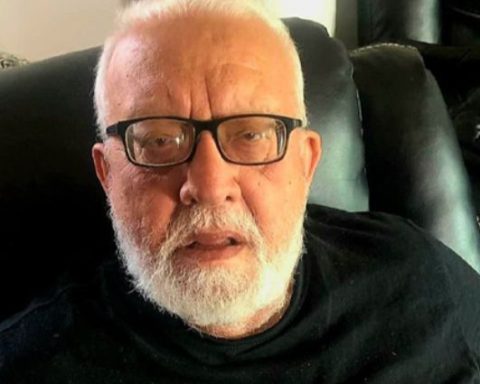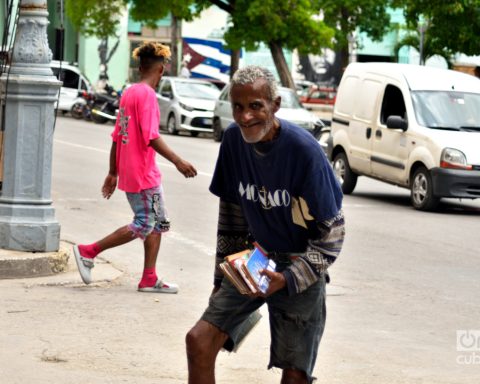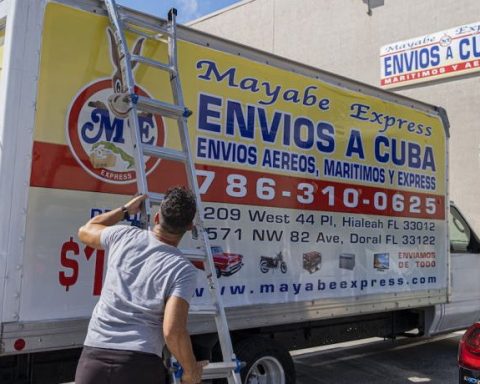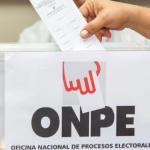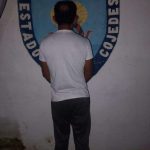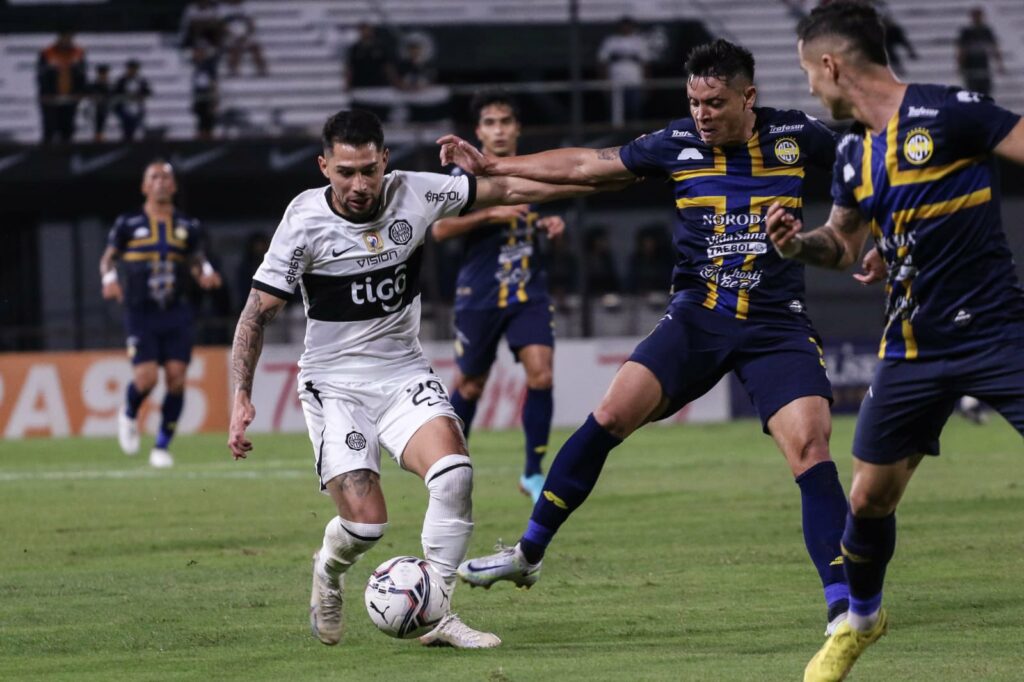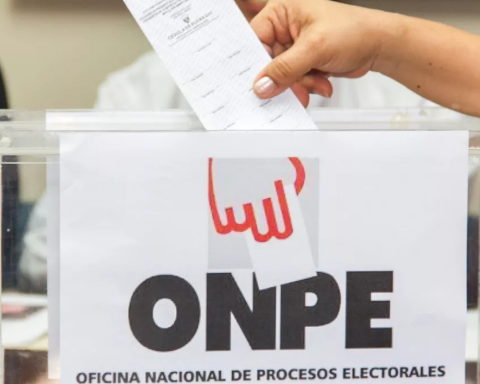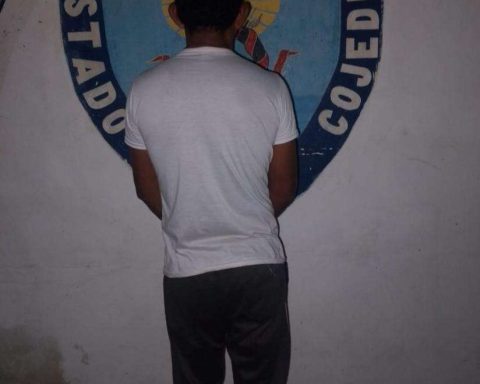Havana Cuba. — The “reelected vice president” Salvador Valdés Mesa visited these days of April, in the Granma province, the coastal towns of the Gulf of Guacanayabo, Niquero, Media Luna, Campechuela and Manzanillo.
At 77, Valdés Mesa, a peasant from Central Francisco turned civil servant, walks with his little step reminiscent of the popular guaracha Chencha la Gambá, the one who used to say: “The other day a little dog happened to me here / running away from a cat / and the bad boys say/ that a tram can pass through here. /Walk like Chencha the shrimp”.
In charge of the country’s productive affairs, Valdés Mesa walks through cane fields or industrial companies, bow-legged and dragging his feet. He leans on the shoulders of the sycophants who accompany him, looks at the horizon, extends his hand, says something and the audience nods by pure mechanism.
The vice went to those distant lands of the Granma province, where nothing arrives, with the tragicomic banner of the Food and Nutrition Sovereignty Plan.
It went round and round in the air, like in the song by Fito Páez, but it did not stop at any agricultural market in the territory, where there are not enough products to demonstrate the successes of the regime in terms of feeding the people.
This “cork man” (he was the same Minister of Labor as head of the Central de Trabajadores de Cuba), as always, scolded his listeners present. He told them to work harder to meet the urgent food needs of the people.
It was in Pilón—where he arrived by air, since the south coast highway has been impassable for twenty years—where Valdés Mesa’s visit began. There he examined the progress of the spring campaign of various crops, the contracting of agricultural production, non-payment to farmers and the use of the land.
Salvador Valdés Mesa always talks about the same thing, as if he were a mimetic copy of the previous “vice president”, Dr. José Ramón Machado Ventura, who also spent his time waddling through the furrows, trying to teach farmers what to do.
To play the savior concerned for his people, he asked the residents about working conditions and salary income. Pure hypocrisy. In rags, starving, and haggard from nights without electricity, it is obvious that they have a very bad time.
Also for that of much invention and little science, he monologue about investigations and experiences that, if generalized, would increase productions for animal feed and the obtaining of vegetable oil.
One step ahead, in Media Luna, he criticized producers and agricultural officials for the low planting of minor crops. To find a culprit for poverty and lack of employment in the territory, he attacked the high prices of grains, meats and milk. He also referred to crimes against livestock.
Valdés Mesa forgot that, in that area after the Álvaro Reinoso Program, in 2002, they dismantled five sugar mills.
In Manzanillo he spoke of autonomy and municipal economy, and of the recovery of the aquaculture station.
Valdés Mesa should have talked to Pedro Nueva, a resident of Calle 12 de Agosto, so that he would realize how critical the situation is in Manzanillo.
Days before Valdés Mesa’s visit, Pedro told me: “Here, unemployment is high. Professionals emigrate to Bayamo, Santiago, Havana, or leave the country. There are no investments here. The roads are empty. The ports and coastal trade are closed. There is no fuel. Blackouts, since last year are the order of the day. Without fuel, the peasants cannot till the land, irrigate the crops, harvest the people, nor can the fishermen go to sea”.
The man expects nothing from the visits of the leaders of Havana.
When I asked him, what happens if Vice President Valdés Mesa passes by?, he replied: “Nothing. Absolutely nothing. Everything will remain the same, or worse.
OPINION ARTICLE
The opinions expressed in this article are the sole responsibility of the person who issues them and do not necessarily represent the opinion of CubaNet.
